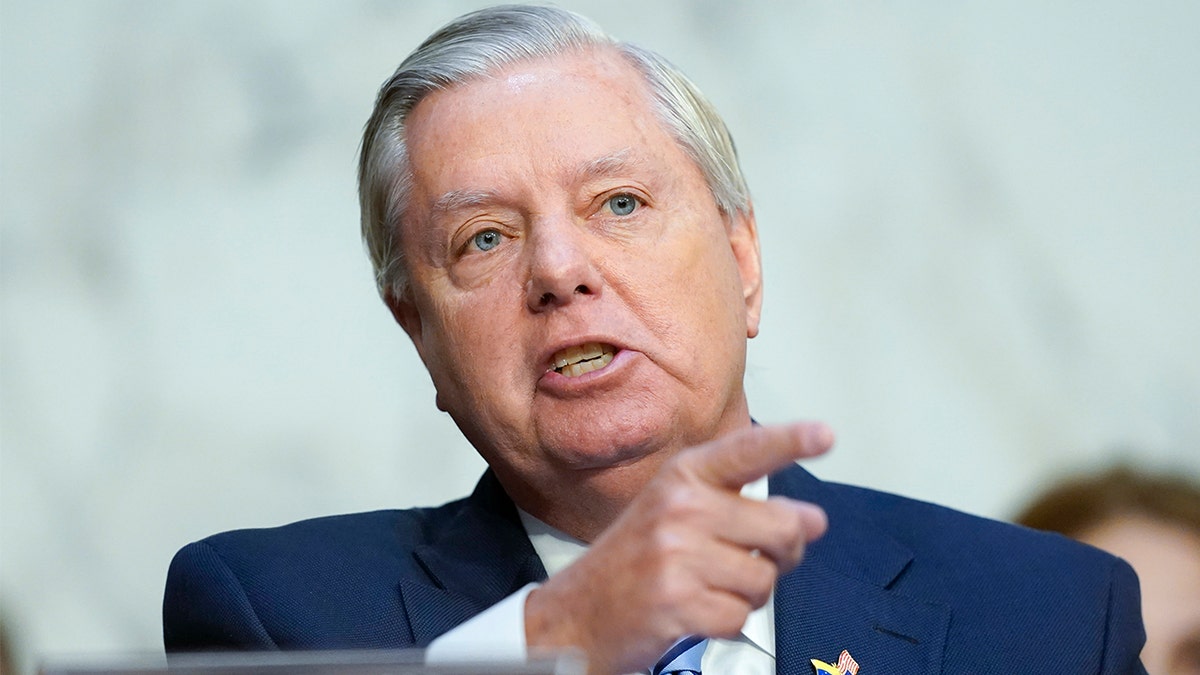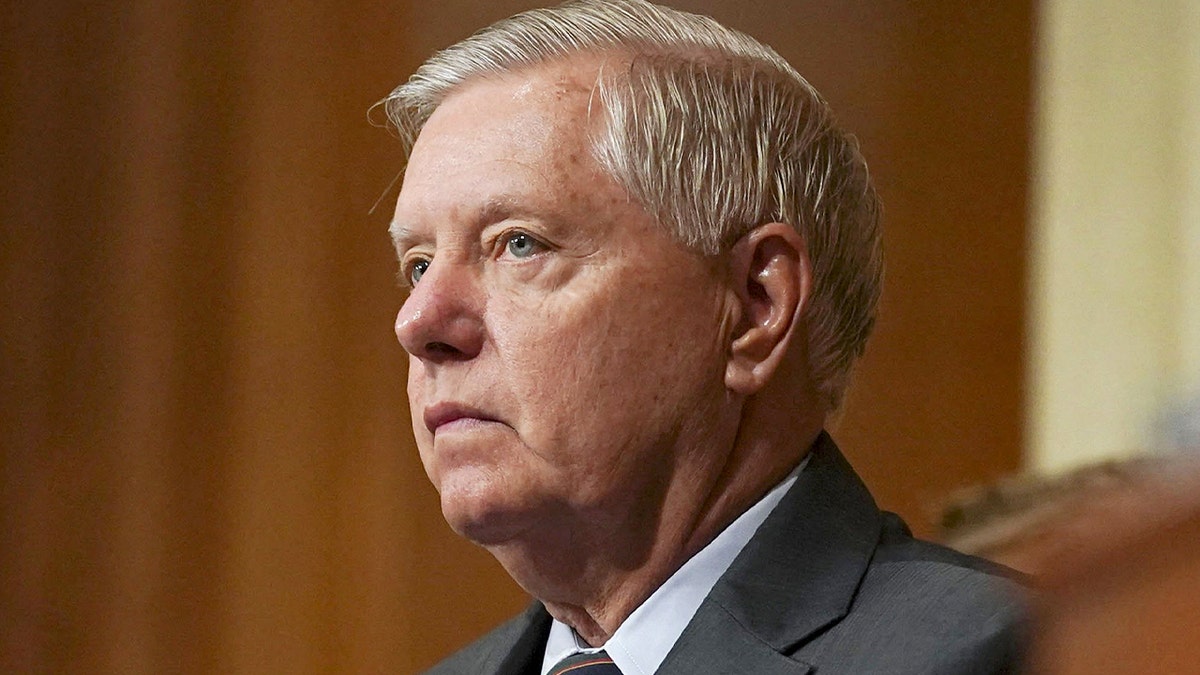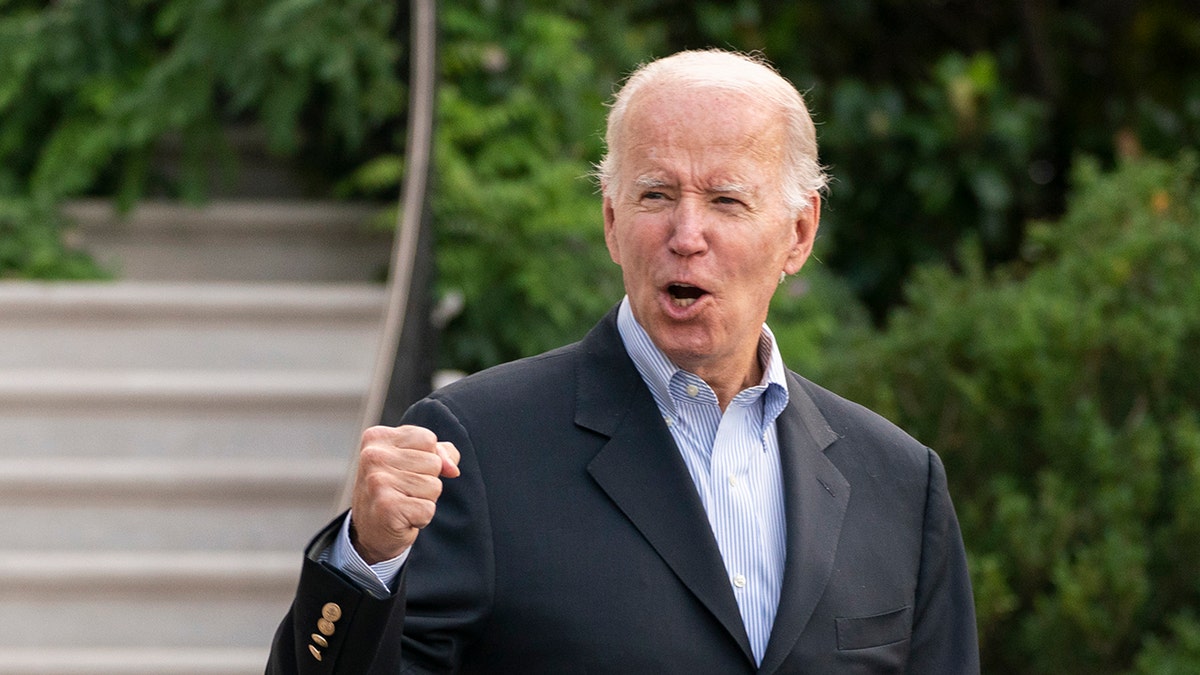Fox News Flash top headlines for August 7
Fox News Flash top headlines are here. Check out what's clicking on Foxnews.com.
Sen. Lindsey Graham, R-S.C., said Sunday that the Inflation Reduction Act, which Democrats are poised to pass in the Senate without any Republican support, is not going to bring down inflation and will worsen the recession.
During an appearance on CNN’s "State of the Union," Graham said the bill, which includes roughly $433 billion in new spending, "is going to make everything worse."
"I voted for a bipartisan infrastructure bill, I voted for gun legislation, I'm not going to vote for this," Graham said. "The minimum tax of 15% destroys expensing. Now what does that mean – if a company buys a piece of equipment, they could expense it under the 2017 tax cut in the same year they bought it – that goes away."
"So [the Congressional Budget Office] says it disincentivizes companies for building factories, buying equipment, which would help guide us get out of recession," the South Carolina Republican continued. "There's a 16.4% tax on imported barrels of oil that are going to increase cost at the gas pump, subsidies for Obamacare go to families making $304,000 a year, which I think is ill-conceived, and the bottom line, it's not going to help inflation."
DEMOCRATS RELY ON MISLEADING MESSAGING TO SELL MANCHIN-SCHUMER BILL

Sen. Lindsey Graham, R-S.C., questions Supreme Court nominee Ketanji Brown Jackson during a Senate Judiciary Committee confirmation hearing on Capitol Hill in Washington, Tuesday, March 22, 2022. (AP Photo/Andrew Harnik)
Graham said the Democrats’ attempts to paint the bill as deficit reducing is a "gimmick."
"It says it would reduce the deficit by $100 billion – we're going to spend almost a trillion dollars," the senator said. "The truth is the Obamacare subsidies go away after 3 years. Well, we all know they're not going to go away. So if they stayed in place for 10 years it would add $280 billion to the deficit. So it's a gimmick."
"This thing is gonna make everything worse, and not one Republican is gonna vote for it," he added.

Senator Lindsey Graham, a Republican from South Carolina, listens during a hearing looking into the budget estimates for National Institute of Health (NIH) and the state of medical research on Capitol Hill in Washington, DC on May 26, 2021. (Photo by STEFANI REYNOLDS/POOL/AFP via Getty Images)
The Inflation Reduction Act, a slimmed down version of President Biden’s Build Back Better (BBB) Act, will cost an estimated $433 billion, most of which will be invested in climate provisions, while increasing tax revenue by $739 billion. Despite its name, a report this week from the nonpartisan Congressional Budget Office (CBO) said the bill would have a "negligible" effect on inflation.
DEMOCRATS' INFLATION REDUCTION ACT IS ‘ECONOMIC MALPRACTICE’: ECONOMIST
"In calendar year 2022, enacting the bill would have a negligible effect on inflation, in CBO’s assessment," the office said. In calendar year 2023, inflation would probably be between 0.1 percentage point lower and 0.1 percentage point higher under the bill than it would be under current law, CBO estimates.
According to a December analysis by the Tax Foundation, the most economically damaging provision in the bill is the 15% "corporate alternative minimum tax," which requires businesses with profits over $1 billion to pay a minimum tax rate of 15%.

President Joe Biden responds to reporters questions as he walks to board Marine One on the South Lawn of the White House in Washington, on his way to his Rehoboth Beach, Del., home after his most recent COVID-19 isolation, Sunday, Aug. 7, 2022. (AP Photo/Manuel Balce Ceneta)
The minimum tax alone will reduce GDP by 0.1 percent and cost about 27,000 jobs, the Tax Foundation projects. The minimum tax will deal the biggest blow to coal workers, levying a net tax hike of 7.2% on the coal industry’s pretax book income, according to a November analysis by the foundation. The second-hardest hit by the tax, according to the study, is the automobile and truck manufacturing industries, which face a 5.1 percent tax hike, the study said.
CLICK HERE TO GET THE FOX NEWS APP
The nonpartisan Congressional Joint Committee on Taxation (JCT) has also released data claiming that in 2023, the year in which the bill would increase tax revenue most, individuals making less than $10,000 per year would pay 3.1% more in taxes and those making between $20,000-$30,000 per year would see a 1.1% tax increase due to the trickle-down effect of the 15% minimum tax. Tax revenue collected from those making $100,000 per year or less would increase by $5.8 billion in 2023, the report said.













































